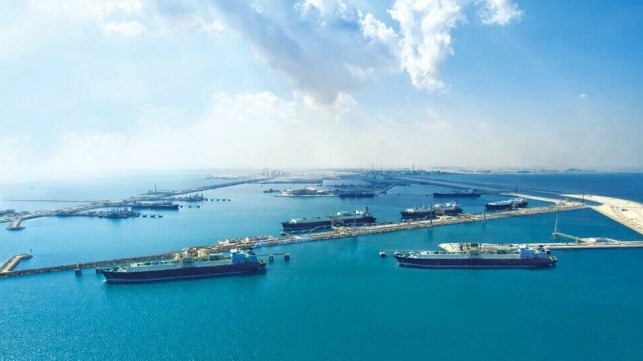Sinopec Signs 27-Year LNG Supply Contract, the Longest Ever Inked

China has locked up a long-term deal with Qatar for the supply of four million tons per annum (MTPA) of LNG starting in 2026.
Though China’s LNG imports have seen a significant decline this year, driven by factors like economic slowdown, rising prices, policy support for clean coal and a warmer-than-usual winter, Beijing still wants to secure its future gas supplies.
State-owned Sinopec has signed a 27-year sale and purchase agreement with QatarEnergy, the world's number-two LNG producer after Australia. The deal, which will see QatarEnergy supply LNG to China from its North Field East (NFE) expansion project, is the longest LNG supply agreement in the history of the industry, according to Qatari energy minister Saad Al Kaabi.
He added that apart from solidifying the bilateral relations between the two countries, the agreement will help meet China's growing energy needs going into the future. China and Japan are the world’s biggest LNG importers.
Forecasts by global research and consultancy group Wood Mackenzie show that China’s LNG imports will decline by 14 percent to 69 million tonnes this year, the largest decline since the country began importing LNG in 2006. The decline means that Japan will move back to becoming the world’s largest LNG importer. Despite the temporary decline, it is estimated that by 2030, China's LNG import demand will reach 150 billion cubic meters, an increase of 38 percent over 2020.
The agreement is the second LNG SPA between QatarEnergy and Sinopec, following the 10-year deal signed in March 2021 for the supply of 2.0 mtpa. It is also the first long term LNG offtake agreement for the NFE project, and comes on the heels of QatarEnergy’s conclusion of the formation of eight international partnership agreements for the North Field East and North Field South (NFS) projects, which are expected to come online in 2026 and 2027, respectively.

that matters most
Get the latest maritime news delivered to your inbox daily.
The NFE project is the single largest project in the history of the LNG industry and will have a capacity of 33 million tonnes per annum. Projected to cost $29 billion, the project will raise Qatar’s LNG production capacity from 77 million tonnes annually to 110 million tonnes.
All of that new export volume will need to be carried, and QatarEnergy has already concluded construction contracts and long-term charter agreements for 60 new LNG carriers. The number is expected to grow to almost 100 in the future.
